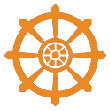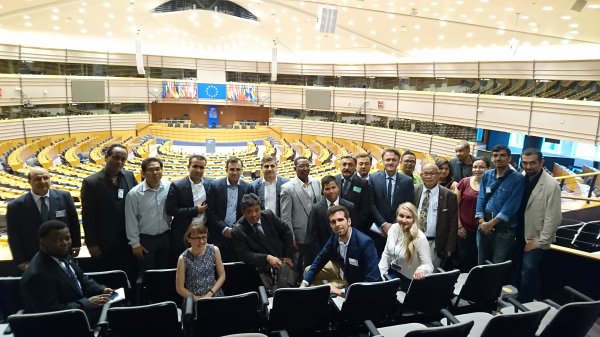September 14, 2016
Combining EU and UN Advocacy and Performing as a Diplomat – New Skills Acquired at Third Workshop for Unrepresented Diplomats in Brussels
On 8-9 September 2016, Tibet Justice Center, together with Oxford University Associate Professor Fiona McConnell and the Unrepresented Nations and Peoples Organization (UNPO), ran a workshop entitled “Performing as a Diplomat at the UN and the EU”, in which participants from 21 different unrepresented nations, guided by a team of trainers and facilitators, discussed the role of the EU as a forum for human rights advocacy, as well as how to combine it with advocacy at the UN and other organisations. The workshop, the third and last of the larger programme “Training Diplomats from Unrepresented Nations: Capacity Building for Effective UN Lobbying”, was funded by the ESRC Impact Acceleration Account, 2015-2016.
From over one hundred and fifty applicants, 27 participants representing the Acheh, Al-Ahwaz, Assyria, Balochistan, Cabinda, Chin, Chittagong Hill Tracts, Gilgit Baltistan, Haratin, Iraqi Turkmen, Khmer Krom, Kurds in Iran, Kurdish-Kurmanj, Lezghin, Montagnards, Ogoni, Oromo, Sindh and Uyghur communities, as well as Somaliland and the Turkish Republic of Northern Cyprus, were selected to participate in the workshop, which took place in the premises of the Centre Maurits Coppieters (CMC), in Brussels.
After an introductory session on the functioning of the European institutions and the opportunities they offer for human rights advocacy, facilitated by Johan Häggman (currently researcher at the Université Catholique de Louvain, but with significant experience in lobbying the EU and being lobbied while working for different EU institutions) the participants took part in a guided tour of the European Parliament, which offered an analysis of the specific role of the institution within the larger EU framework. During the visit, the participants also engaged in a discussion with Csaba Sógor MEP (EPP, Romania) on how to approach MEPs in order to influence the Parliament’s human rights agenda. To conclude the first day, former Dutch diplomat Marc Bentinck challenged the previously discussed topics by giving a presentation sharing his insights into the European Union advocacy environment, with a particular focus on the current “crisis” of the EU and how this shifts EU policy-makers’ attention away from international affairs and the impact this can have on the role of unrepresented diplomats.
On the second day, communication specialist Pemma Fox led an interactive workshop to help the participants improve their communication skills and become more aware of the way they deliver their message. Ms Fox introduced the participants to different approaches to diplomacy and working that also help in strengthening communication skills. Following this introduction, UNPO’s Johanna Green and Tommaso Nodari started an interactive discussion about the UN Forum on Minority Issues and the importance of this yearly gathering for UNPO members and other groups.
The last session, chaired by Fiona McConnell, Associate Professor at the University of Oxford and main coordinator of the training programme, involved a vibrant discussion with lobbyists Vincent Metter, EU Policy Director at the International Campaign for Tibet, and Sidi Omar, Diplomat of the Frente POLISARIO of the Sahrawi Republic. During this discussion, Mr Omar and Mr Metten shared their experiences in raising issues at the UN and the EU, as well as the differences and similarities between the two institutions and their successes and difficulties with them.
Over the two days, participants engaged in passionate discussions with the trainers and among themselves, sharing their respective experience with lobbying at the UN and the EU and feedback on each other’s presentation skills. Additionally, many of them are now planning to participate in this year’s Forum on Minority Issues.
To read more about the project, please visit the Training Programme’s website.
We are also conducting a survey on the experiences of members of unrepresented nations in lobbying at the United Nations. You can fill in the questionnaire in English or in French.

